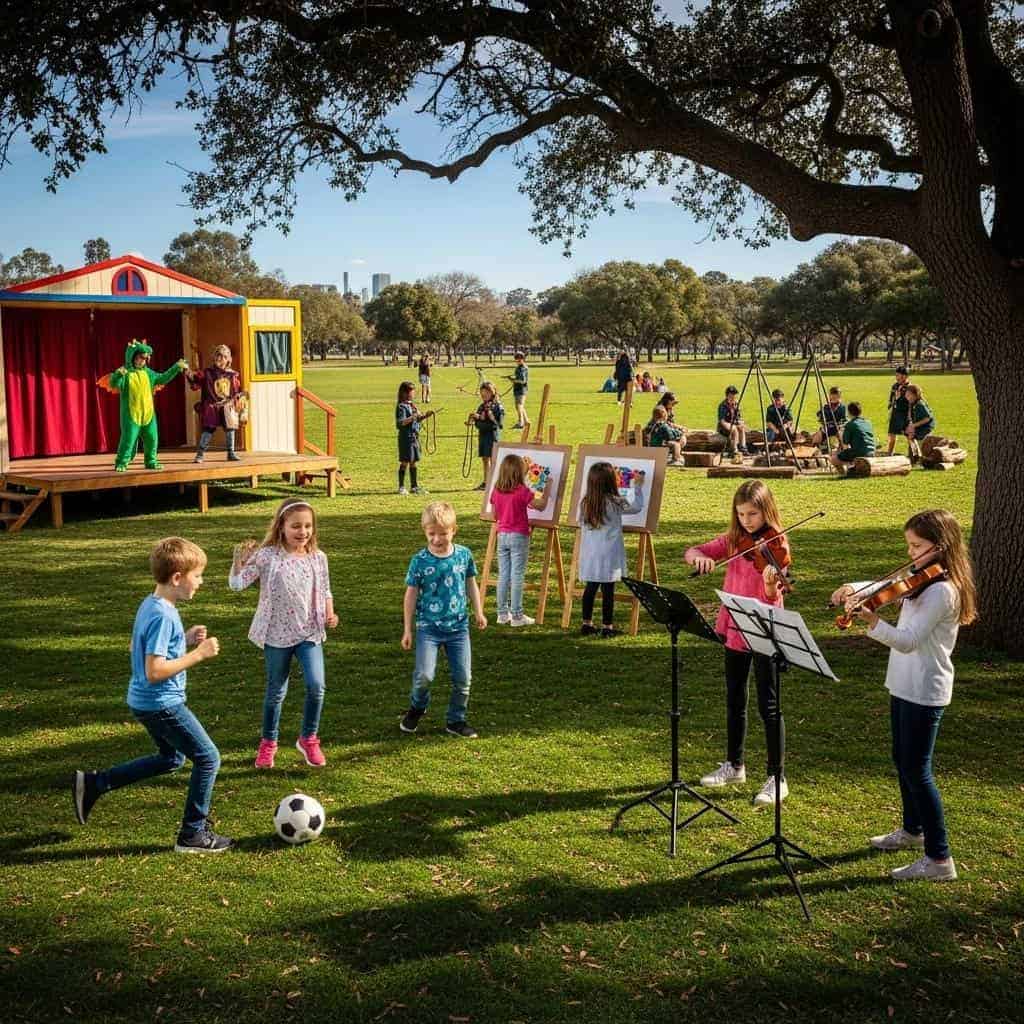11 Homeschooling Myths You Shouldn’t Believe
Despite its growing popularity, homeschooling is surrounded by persistent myths and misunderstandings. Many assumptions stem from outdated ideas or a lack of firsthand experience, leading to confusion about what homeschooling truly involves. To make sound educational choices, it’s crucial to distinguish between fact and fiction. By shedding light on the reality of homeschooling, families can better understand its benefits and challenges.
1. Homeschoolers Lack Socialization

The idea that homeschooled children are isolated is outdated and inaccurate. Many homeschoolers participate in extracurricular activities, sports teams, community service, and homeschool co-ops, providing diverse opportunities for social interaction. Research shows that homeschooled students are often just as well socialized as their peers in traditional schools—sometimes even more so—thanks to their active involvement in a variety of group and community settings.
2. Homeschooling is Only for Religious Families

While religious beliefs historically influenced some families’ decisions to homeschool, today’s homeschoolers come from diverse backgrounds and hold various motivations. Many families choose homeschooling for academic rigor, individualized learning, or schedule flexibility. Concerns such as a safe environment, dissatisfaction with academic instruction, and unique learning needs are also common reasons. Homeschooling is no longer limited to one demographic, but instead reflects a broad spectrum of educational priorities and values.
3. Homeschoolers Don’t Get a Quality Education

The belief that homeschooling results in a subpar education is not supported by research. Numerous studies have shown that homeschooled students often perform as well as, or better than, their public school peers on standardized tests. Homeschooled students consistently score above average in core subjects. This success is frequently attributed to personalized instruction and a curriculum tailored to each student’s needs, allowing for deeper understanding and academic achievement.
4. Parents Need to Be Certified Teachers

Contrary to popular belief, most states do not require parents to be certified teachers in order to homeschool their children. Legal requirements typically involve submitting a notice of intent, keeping records, or participating in annual assessments. Parents can access a wealth of curriculum resources, online classes, and local support groups to help guide their teaching efforts.
5. Homeschoolers Miss Out on Extracurricular Activities

The assumption that homeschooled students lack access to extracurricular activities is unfounded. Many participate in sports leagues, music lessons, scouting, theater, and other clubs through community organizations and private programs. In some states, public schools also allow homeschoolers to join teams and activities. Homeschoolers often enjoy a wide range of extracurricular opportunities tailored to their interests and schedules, helping them develop well-rounded skills and friendships outside the classroom.
6. Homeschooling Is Expensive

Many believe homeschooling is only feasible for wealthy families, but this is not the case. The average annual cost per child is estimated to range from $700 to $1,800, which can be significantly less than some private school tuitions. Families often save by using free online resources, public library materials, and community programs. Many parents creatively manage expenses, proving that homeschooling can be accessible and affordable for a wide range of income levels.
7. Homeschooled Kids Can’t Go to College

The notion that homeschooled students are at a disadvantage when applying to college is outdated. Many colleges and universities across the U.S., including prestigious institutions, accept and even actively recruit homeschoolers. Admissions offices recognize homeschooling as a valid educational path and often have clear guidelines for applicants. Homeschooled students are frequently admitted to top schools and succeed in higher education, dispelling the myth of limited college opportunities.
8. Homeschooling Is Only for Gifted or Struggling Kids

Homeschooling is not limited to students who are exceptionally gifted or have academic struggles. Families choose homeschooling for children of all abilities, including those who are average learners. Many students thrive with the individualized attention and flexible pacing that homeschooling provides, allowing them to reach their full potential. Homeschoolers represent a broad spectrum of academic abilities, demonstrating that this educational path can benefit a diverse range of students.
9. Homeschoolers Aren’t Prepared for the Real World

The belief that homeschoolers are unprepared for real-world challenges is unfounded. Homeschooling’s flexible schedule often enables students to pursue internships, volunteering, job shadowing, and entrepreneurial projects, giving them valuable hands-on experience. Research shows that homeschoolers frequently develop strong life skills, independence, and adaptability. These real-world learning opportunities help students transition smoothly into adulthood, demonstrating that homeschoolers are often well-equipped for life beyond academics.
10. Homeschooling Is Isolating for Parents

The perception that homeschooling parents are isolated overlooks the abundance of support networks available today. Parents can connect through online forums, local homeschooling groups, and educational co-ops that foster a sense of community and provide shared resources. These networks offer emotional support, curriculum advice, and opportunities for group learning. Many families find a strong sense of belonging and collaboration within the homeschooling community, dispelling the myth of parental isolation.
11. Homeschoolers Are Behind Academically

The notion that homeschoolers consistently fall behind academically is not supported by research. Numerous studies indicate that many homeschooled students perform at or above grade level, often excelling in core subjects. Homeschooled children typically achieve strong academic outcomes compared to their traditionally-schooled peers. Personalized instruction, flexible pacing, and the ability to tailor learning approaches contribute to these positive results, effectively debunking the myth of academic lag among homeschoolers.
Conclusion

Challenging common misconceptions about homeschooling is essential for making informed educational decisions. As research and real-world examples demonstrate, homeschooling offers flexible, enriching, and effective learning opportunities for diverse families. Myths about socialization, academic quality, and access to resources often do not reflect reality. By considering credible sources and the experiences of homeschooling families, it becomes clear that homeschooling can be a viable, high-quality option.
.article-content-img img { width: 100% }




